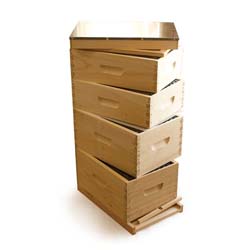In our first edition of Beekeeper Stories we chat to Sandy Soares, a Colony member from Rhode Island and a long-time, passionate beekeeper.
Sandy started, like many beekeepers, through an encounter with a swarm. Her story includes a decades-long beekeeping partnership with her first husband, bee education at a local zoo, beekeeping as a form of farming – and an urgent “evacuation” of bees across state lines!
Read on to learn more about Sandy’s love of bees.
Sandy has long been a member of the Rhode Island Beekeepers’ Association and has shared her experience on social media platforms with other beekeepers. She has also worked within her local zoo as a docent, educating people about bees at the observation hive.
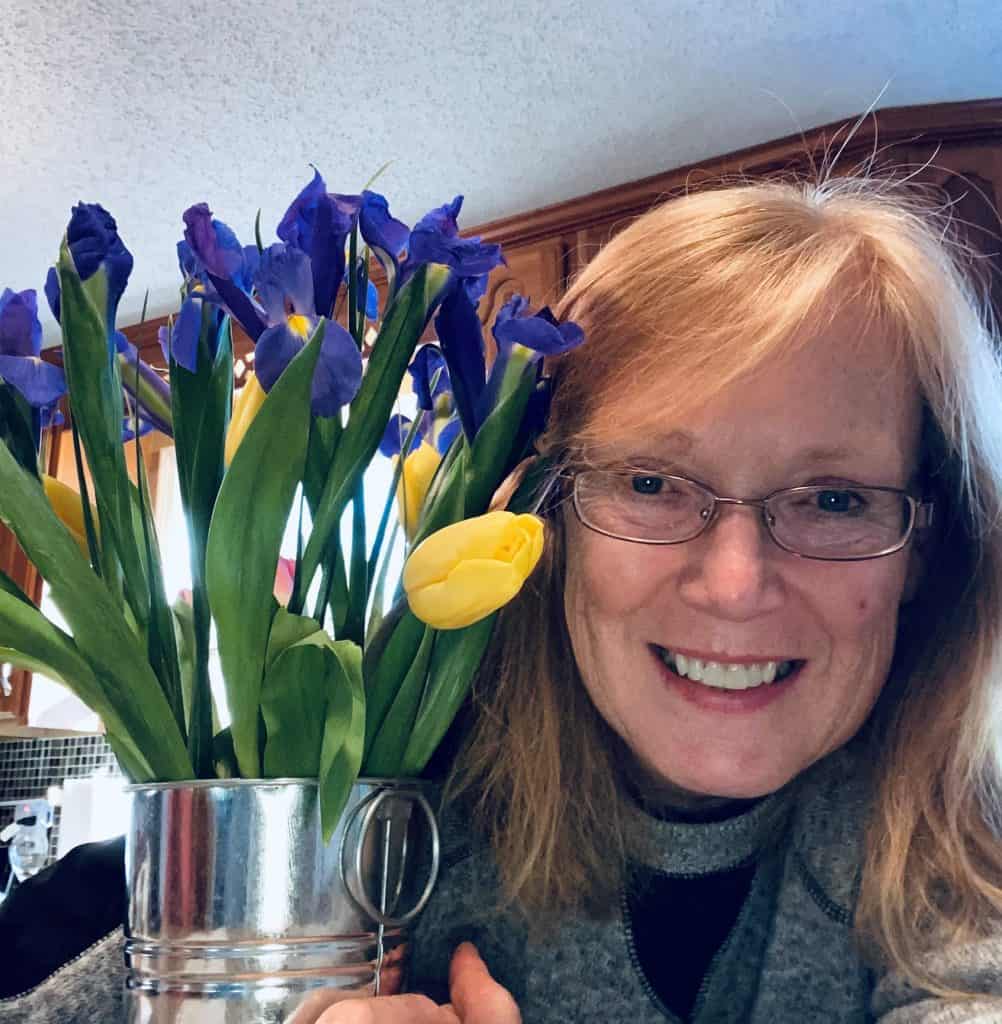
Sandy is very conscious of her impact on both the environment and her bees. Her love of bees is palpable and her thirst for knowledge and understanding is prevalent.
Sandy currently has four new hives thriving on her property. This spring she plans to split one of her colonies as well as add a new package.
We asked Sandy about her beekeeping passion.
In 1978 , you discovered a swarm of bees outside the window of your third-floor apartment. Upon realizing they were bees, not wasps, you decided to find a way to move them out. How did do that and what was it about that moment made you want to start beekeeping?
The roof had all sorts of angles and the bees had built in a corner outside the kitchen window. I do not remember that a lot of bees were coming in, but there were enough for us to stick our heads out and see them.
When it came time to get the colony off the house, my husband Wayne went up there with a box and a piece of cardboard. He ran the cardboard up behind the combs and carried it down. We cut the combs apart and wired them half-and-half with foundation into new frames. That hive did not survive the winter, but we were committed to beekeeping from that point on!
This was 1978, long before the internet and Google. The only reference to find a supplier of equipment was the Yellow Pages. We were fortunate to find a local beekeeper by the name of Clarence who had decades of beekeeping experience, along with owning a farm and garden store that sold beekeeping equipment.
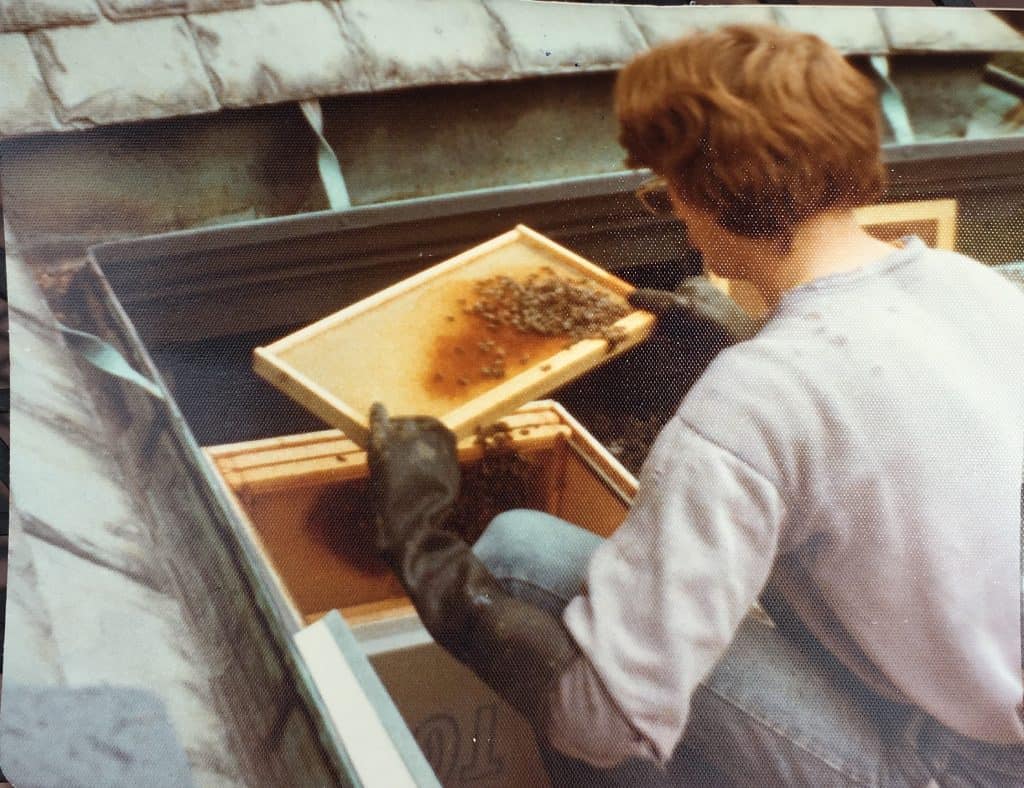
As with all beekeepers I have met, Clarence was very willing and happy to help, answering all our questions and getting us started. I still use my original smoker from A.I Root, even though it really needs to be replaced. I just can’t bear to give it up!
While working at the zoo, did you find a lot of interest with bees among patrons? Were people informed or were you able to surprise them with knowledge? Were there any common themes to how people responded to the idea of beekeeping?
Kids are always more curious than parents! I had several occasions where the adults admitted they were afraid and stayed quite far away, even though it was an observation hive.
There was one woman that comes to mind who I was able to get interested, even though she was deathly afraid of bees. As I answered questions and explained things to the kids, she came closer until she ended up right by my side. I heard a lot of “I had no idea!” and “that’s so interesting!” which was always gratifying.
What do you enjoy most about beekeeping?
I love the culture and the bees, which are both frustrating and fascinating. To me, this is farming. I revel in their success and I despair when something goes wrong.
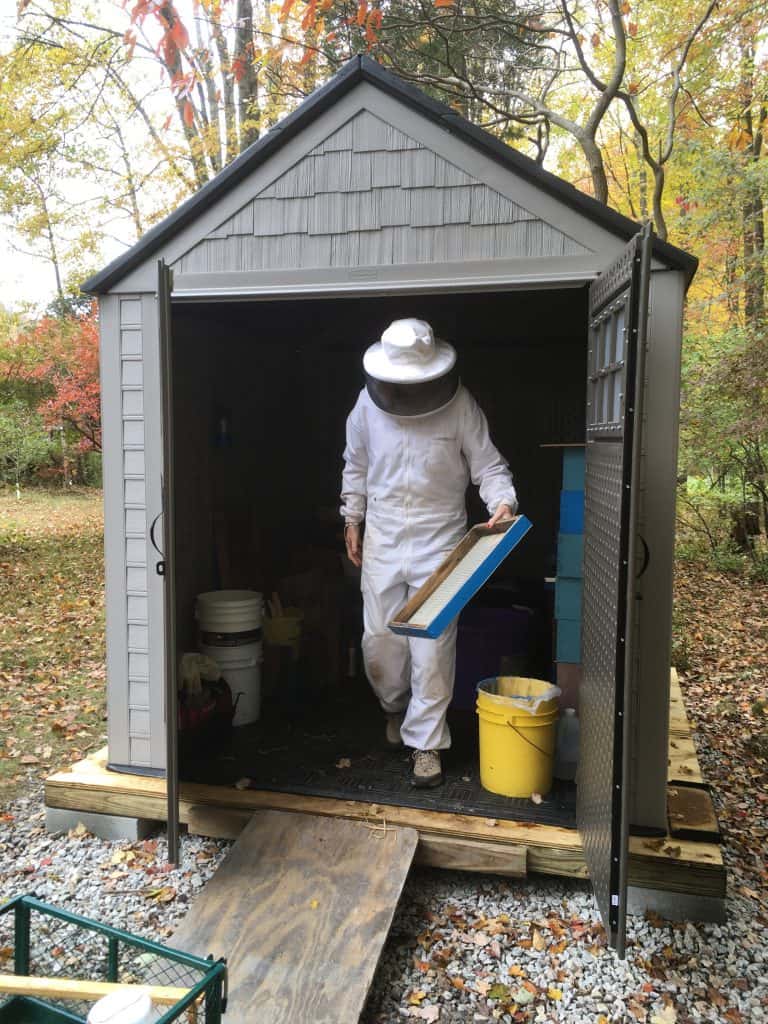
Ever after 40 plus years I am still second guessing myself and still learning. I love to share my knowledge with other beekeepers and especially with people who are just curious.
You relate beekeeping to farming. Do you, like some farmers with their animals, have a hive to which you are particularly attached? If so, why?
I do not name my queens or hives but I call my bee yard Hilltop Apiary. I feel a responsibility to keep them healthy and alive, but do not consider them pets.
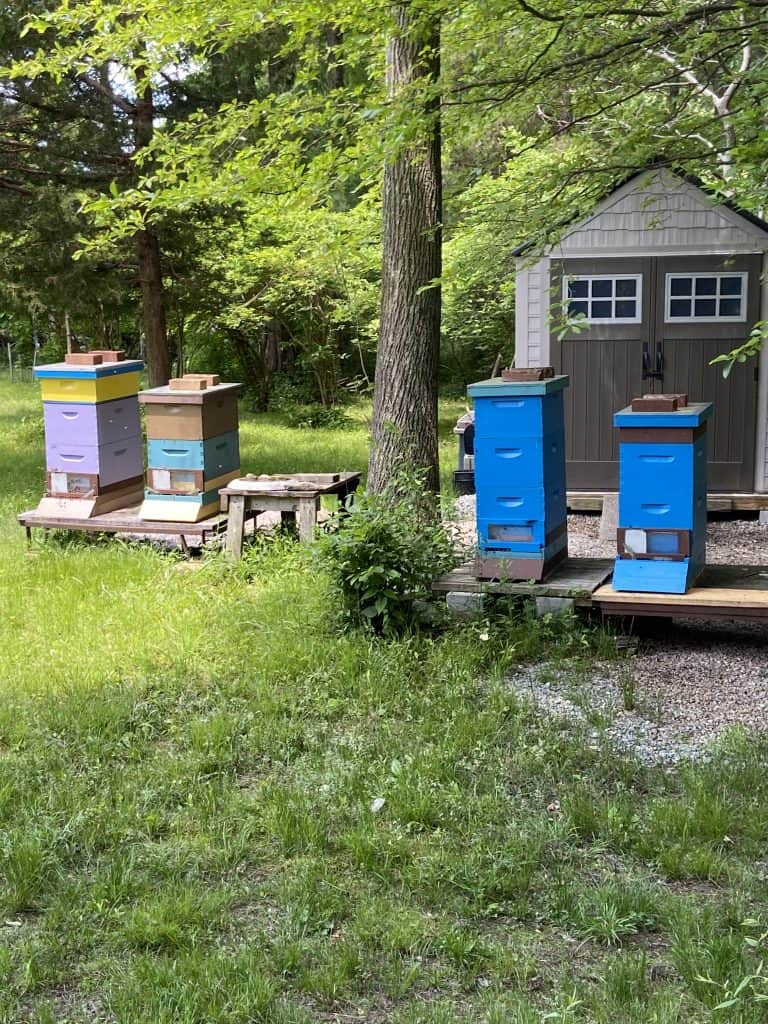
What races of bees do you currently have? Why do you prefer those?
I have Carniolans, Saskatraz, and what I think of as “mutts” which are probably Italian. I like the Saskatraz because they are quieter and supposed to be more resistant to cold weather.
Despite all my years of experience “handling” honey bees, I still suit up and wear gloves. I would love to work bare-handed but even wearing a hat, veil, gloves and jacket, I still occasionally get stung.
You have used a couple of suppliers for your bees over the years. What factors do you use in selecting a supplier you can trust?
For the past few years I have bought all my bees from Cedar Lane in Sterling, Connecticut. They are knowledgeable, generous with their time, and know how to handle bees.
There is a supplier much closer to my house but I will travel the 45 minutes Cedar Lane every time to buy my bees, because I like the way they do business.
After purchasing bees through the mail once in 1978, I would never do it again. I have to rely on whoever I purchase from to be honest and ethical.
Do you have any interesting stories from your beekeeping journey?
In 1981 there was a gypsy moth infestation. The moths were destroying the trees and the state started spraying Sevin, which we knew would kill our bees if they sprayed in our town. We took a petition to our neighbors asking for the town not to be sprayed, but we were unsuccessful.
The night before the spraying was to happen, we loaded our eight hives onto a trailer and drove them an hour away to Connecticut. They survived and we brought them back at the end of the summer.
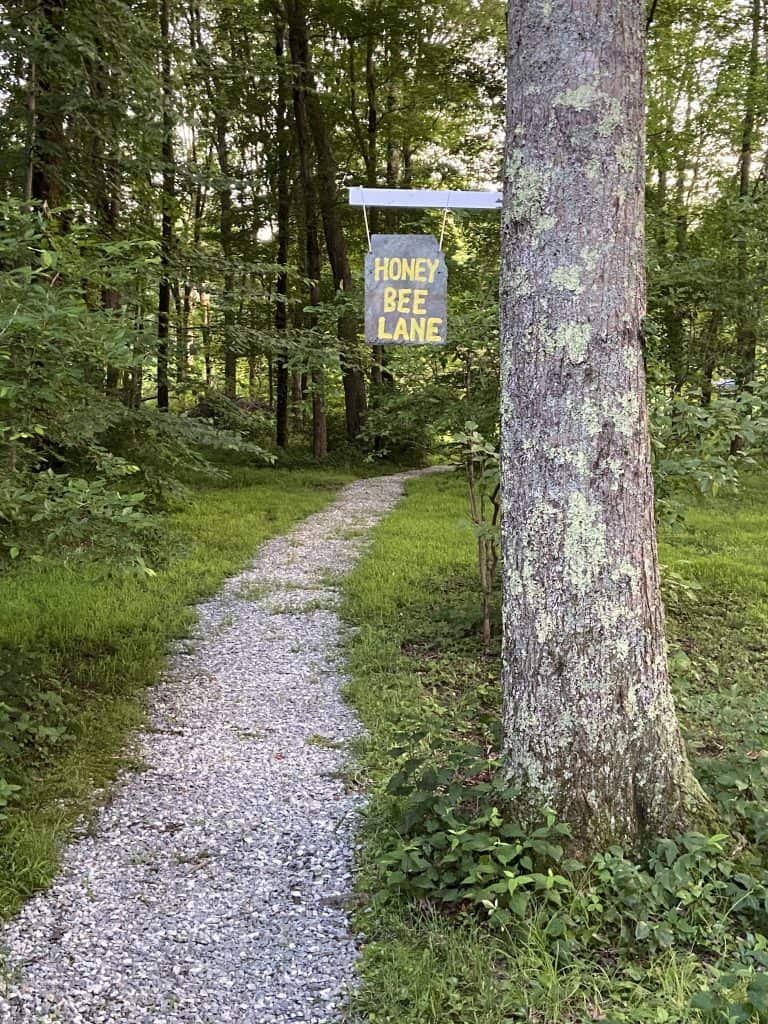
It is incredible that you moved your bees across state lines to keep them safe. That is dedication! How much prep went into that endeavor?
Once we realized we would not be successful in stopping the spray we just got moving. My grandparents were living in Connecticut and had space.
Wayne fabricated some screens and, at dusk, we screened the entrances. We used banding straps with ratchets to hold them together and loaded eight hives, each with two deeps, onto a little utility trailer. After about an hour drive we spent all night unloading and setting them up.
Is there any other unique angle or aspect of you or your beekeeping that might be of interest to our readers?
Life has taken many turns since we discovered that swarm on our house, 43 years ago. Wayne and I separated in 1984, with him continuing our little farm and beekeeping. I remarried and continued to live nearly.
After a ten year break, I took a beekeeping class, was pleased with how much I remembered, and bought some bees and equipment! My husband Paul has a severe reaction to bees but was supportive of me getting back into it.
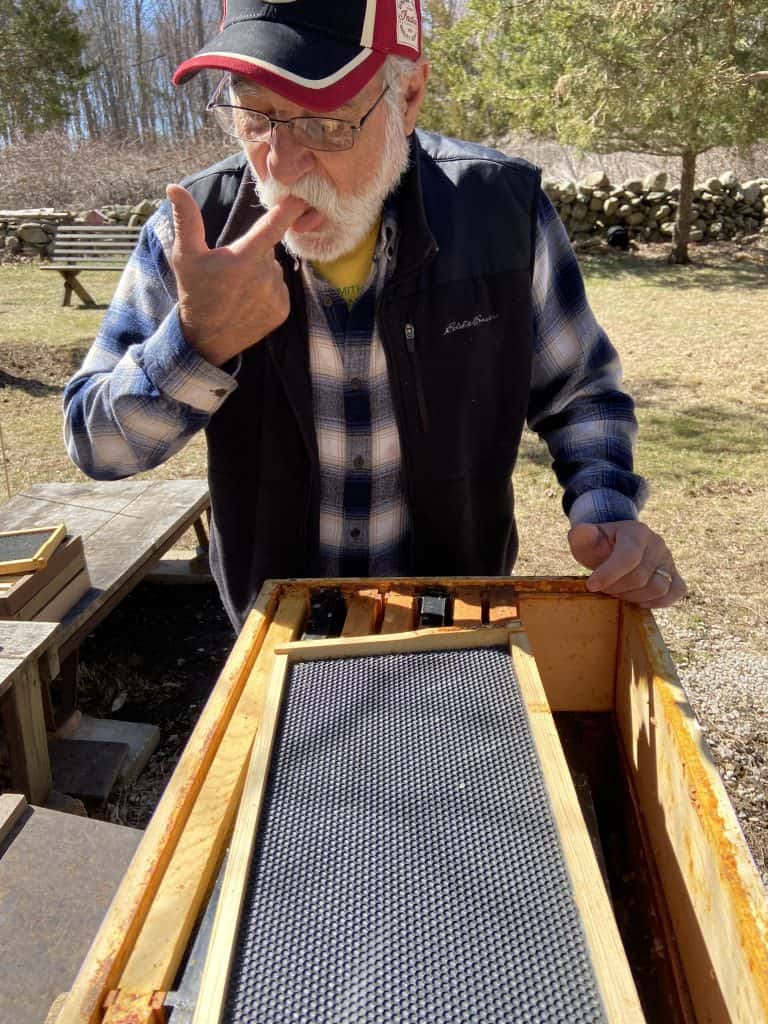
Paul was very instrumental in encouraging me in starting again as well as being supportive even though he gives the bees themselves a wide berth. He waits until after they’ve all gone home before cutting the lawn so as not to scoop any!
Do you keep in touch with Wayne?
Wayne and I continue to be friends and he was reinvigorated to start beekeeping again after seeing me start back up. Even though our apiaries are in different town, we are again combining our knowledge and energies.
Though not life partners, we consider ourselves partners in beekeeping.
That is so comforting to learn. It seems a love of nature holds a bond between the two of you. Are there things that you two do differently within your apiaries? Things that you both swear by?
We have similar theories and ideas about beekeeping. We both feel it is about the bees and not so much about selling honey.
I have converted to running 8-frame hives, deeps, and medium honey supers because of the weight. I’m not in my 20’s anymore and those boxes get heavy! Wayne continues to run 10-frames.
Wayne is very mechanical and a talented woodworker. He builds a lot of his own equipment and I have been fortunate to be gifted some of his work. When we realized we had to start using OAV to treat mites, he had a respirator, so he treats my hives for me.
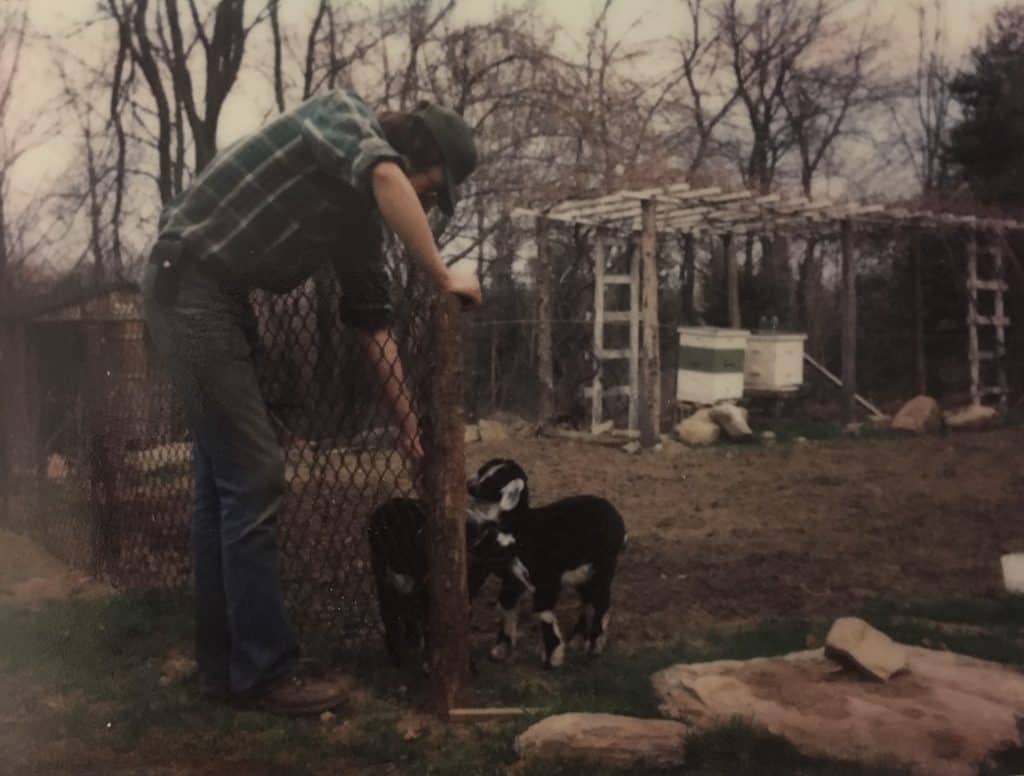
Most of the time I work alone but we work together when there is a big project to be done. We often compare information about what’s going on in our bee yards. I spend more time online and often share articles and such that I find interesting.
Wayne makes candles so I always give him my wax and we usually work together on extracting. We talk often and compare experiences and ideas
Is there a “Sandy beekeeping tip”, namely something that you do or have learned that is not necessarily understood or practiced among beekeepers?
Bee nice!
I follow several beekeeping groups on Facebook and it is shocking how rude and judgmental people can sometimes be. There is a saying that if you ask ten beekeepers a question you will get twelve answers. It is true, but I do wish people did more homework and got more information before they actually started hives
I think people often forget they are dealing with living creatures and have a responsibility to take care of them. But I also know you can do everything in your power, follow all the books – which the bees don’t read! – and still lose a hive.
I have also finally come to terms with the fact that, at least in my area, you must treat for mites. Over the years I have tried to stay away from chemicals, but I have sacrificed enough bees and too many colonies. In fall of 2019 I lost all five of my colonies because I had been very relaxed about treating, and my bees paid the price.
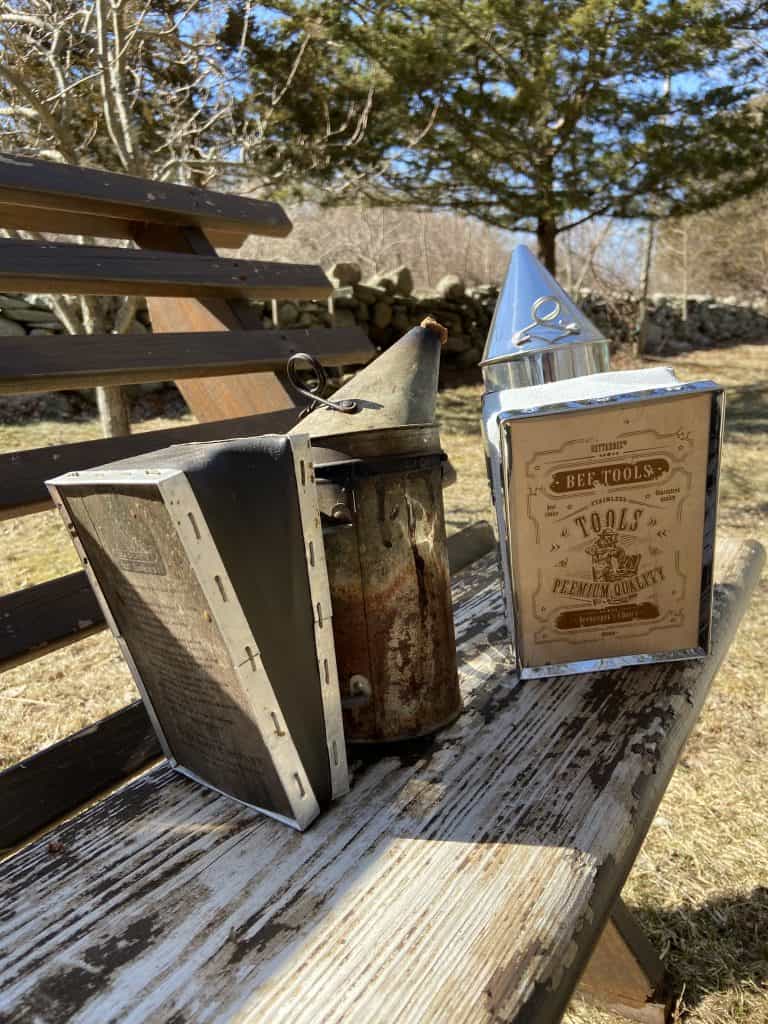
Finally, spring is right around the corner, signaling the time for your overwintered bees to emerge and the excitement of fresh beginnings with new colonies. How do you prepare for spring? What plans do you have for your hives this year?
As of today, all four of my hives have overwintered but we have a ways to go. I’m reading, watching, and re-watching YouTube videos and watching the weather every day.
As I mentioned, I lost all of my hives in 2019 so I’m anxious to get a peek as to what is going on in there and to check for mites. I plan to do the mite check with powdered sugar, per PerfectBee Ambassador Ron Lane’s suggestion, as soon as I can.
The hives that need treating, if there’s brood, I will probably treat with Apivar when it is warm enough. I have a nuc ordered for May and I plan to use it as a resource hive.
